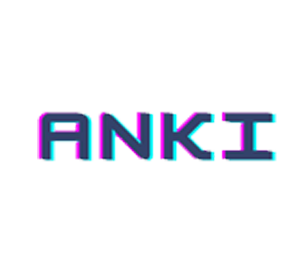“Build your own state”: sovereign identity projects

Sovereign identity projects challenge the fundamental premise of nation-states. They ask: Why should your identity depend on a government-issued document? Why should citizenship, legal status, or even economic participation be controlled by legacy institutions?
Within the darknet, these questions aren’t theoretical. They are driving real projects aimed at creating self-sovereign identities—entirely independent from traditional state structures. These initiatives use cryptography, decentralized ledgers, and privacy-enhancing technologies to redefine what it means to be a “citizen.”
From Cypherpunk Ideals to Sovereign Identity Movements
The Intellectual Roots: Crypto-Anarchism and Agorism
The foundation of sovereign identity projects lies in the philosophies of:
- Crypto-anarchism, which promotes privacy and autonomy through encryption.
- Agorism, advocating for counter-economies operating outside of state control.
Darknet communities took these ideas further, envisioning not just markets or currencies, but
entire digital sovereignties.
Vitalik Buterin’s “Soulbound Tokens” and the Digital Identity Debate
While Buterin’s proposal for “soulbound tokens” (non-transferable NFTs representing
identity) gained attention in mainstream crypto, darknet thinkers criticized its centralization
risks. In response, sovereign identity projects within .onion communities focus on:
- Full anonymity with verifiable credentials
- Zero-knowledge proofs to confirm attributes without exposing identity
- Peer-to-peer identity attestations rather than centralized issuance
Key Sovereign Identity Projects Thriving in the Darknet
The Autonomous Identity Network (AIN)
AIN is a decentralized protocol operating exclusively within darknet nodes. It provides:
- Encrypted identity vaults controlled solely by the user
- Reputation systems based on peer attestations, not government IDs
- Integration with darknet marketplaces and private forums for seamless identity verification
Their motto: “Be who you claim to be, but prove nothing you don’t want to.”
Cryptostateless Collective
This group advocates for digital micronations—self-declared “cryptostates” operating via
sovereign identity systems. Key principles include:
- Citizenship based on cryptographic proofs of values (e.g., privacy, autonomy)
- Decentralized arbitration systems replacing state courts
- Economies powered by privacy coins and barter mechanisms
Their .onion site features manifestos, governance models, and even digital “passports” valid
within their ecosystem.
The Obfuscated Citizen Initiative (OCI)
OCI focuses on obfuscating traditional identity markers:
- Synthetic identities generated through AI, indistinguishable from real profiles
- Obfuscation layers that prevent correlation of activities across services
- Community-driven identity pools where users “mix” identifiers to ensure deniability
They see identity as fluid, believing no authority should dictate its boundaries.
How These Projects Work: Technology Meets Philosophy
Verifiable Credentials Without Central Authorities
Sovereign identity projects rely on decentralized identifiers (DIDs):
- Cryptographic keys form the basis of identity.
- Claims (like “over 18,” “reliable vendor”) are verified by trusted peers, not states.
- Zero-knowledge proofs ensure these claims can be verified without revealing personal data.
This shifts identity verification from hierarchical control to peer networks, aligning with
anarchist principles.
Privacy as Sovereignty: The Role of Cryptography
Privacy is not seen as an optional feature—it is sovereignty itself. Technologies enabling this
include:
- Ring signatures to anonymize transactions and attestations
- Stealth addresses for interacting with marketplaces
- Multi-party computation (MPC) to collaboratively verify claims without exposing data
These tools turn sovereign identity from an abstract concept into functional digital
infrastructure.
Why Build Your Own State? Motivations Behind Sovereign Identity Projects
Rejection of Nation-State Monopolies
For darknet communities, states are monopolies on violence, law, and identity. Sovereign
identity projects offer an escape hatch:
- They eliminate reliance on government-issued IDs for commerce, communication, and community.
- They create parallel systems of legitimacy, recognized by peers rather than imposed by authority.
Practical Needs in Stateless Economies
In darknet markets and services, reputation and trust are vital. Sovereign identities provide:
- A way to build trust without revealing personal information
- Resilience against deplatforming and doxxing attacks
- Tools for arbitration and conflict resolution outside legal jurisdictions
Thus, these projects are not ideological luxuries but practical necessities for stateless
commerce.
Challenges and Criticisms: The Friction of Radical Sovereignty
Scalability and Interoperability
While conceptually powerful, sovereign identity systems face technical hurdles:
- Ensuring compatibility across different darknet services
- Balancing privacy with usability and convenience
- Preventing sybil attacks (fake identities flooding the network)
These are active areas of innovation within darknet developer communities.
Ethical and Social Concerns
Critics argue that sovereign identity systems could:
- Enable fraud and illegal activities with impunity
- Foster echo chambers where harmful ideologies thrive unchecked
- Undermine social cohesion by fragmenting notions of citizenship and accountability
Darknet advocates counter that these risks are inherent to freedom itself and must be
addressed through community governance, not external control.

